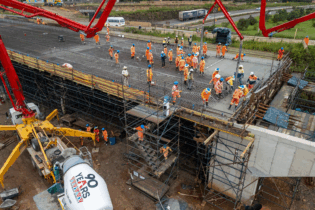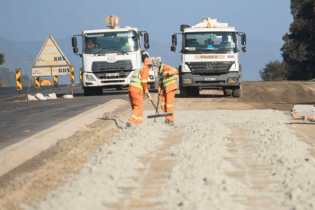Speaking today at day two of the 2012 Public Private Infrastructure Forum, Mfezezko Gwazube, acting COO of the Department of Public Works (DPW), said that key to the department’s job driver is the New Growth Path, which stresses the need for substantial public investment in infrastructure. “The aim of the programme is to create employment directly in construction, operations and maintenance, and the production of inputs,” said Gwazube, “as well as by improving efficiency across the economy.”
“As the public sector and the private sector, we need each other especially when it comes to the effective rollout of infrastructure plans,” he continued. However Gwazube reiterated that the private sector needs to connect amongst itself to fill in some of the missing gaps as there is only so much government can provide. Infrastructure plans The national infrastructure rollout plan draws attention to the need to develop a comprehensive plan, which addresses the legacy of spatial planning by integrating these parts of the country; using infrastructure development as a lead sector in developing economic linkages; and infrastructure development to lead the struggle against the triple evils, namely, poverty, unemployment and inequality. With the conceptual work complete, 17 major long-term strategic integrated projects (SIPs) have been developed and the DPW is positive that this move will have positive effects on regional economies and job creation. Examples of some SIPs are as follows:
SIP 1: the Northern Mineral Belt (centred on the development of massive mineral resources of Limpopo and related economic activities i.e. rail transport, power generation and power supply)
SIP 3: South Eastern Node and Corridor Development (promotion of rural development including a new dam at Umzimvubu; the N2 Wild Coast highway; manganese rail capacity from the Northern Cape to Port Elizabeth; manganese smelter in the Eastern Cape; possible refinery at Coega; and development of a transshipment hub at Ngqura)
SIP 6: Integrated Municipal Infrastructure Project (assisting 23 least resourced districts to address service and maintenance backlogs)
SIPs 8, 9, 10: promoting green energy and expanding production of electricity
SIP 12: revitalisation of public hospitals and health care facilities
SIP 13: national school building programme (including the rapid address of mud schools in the Eastern Cape)
• built environment professionals
• skills transfer
• project management and implementation, and
• unlocking infrastructure spend.
Infrastructure News editor








